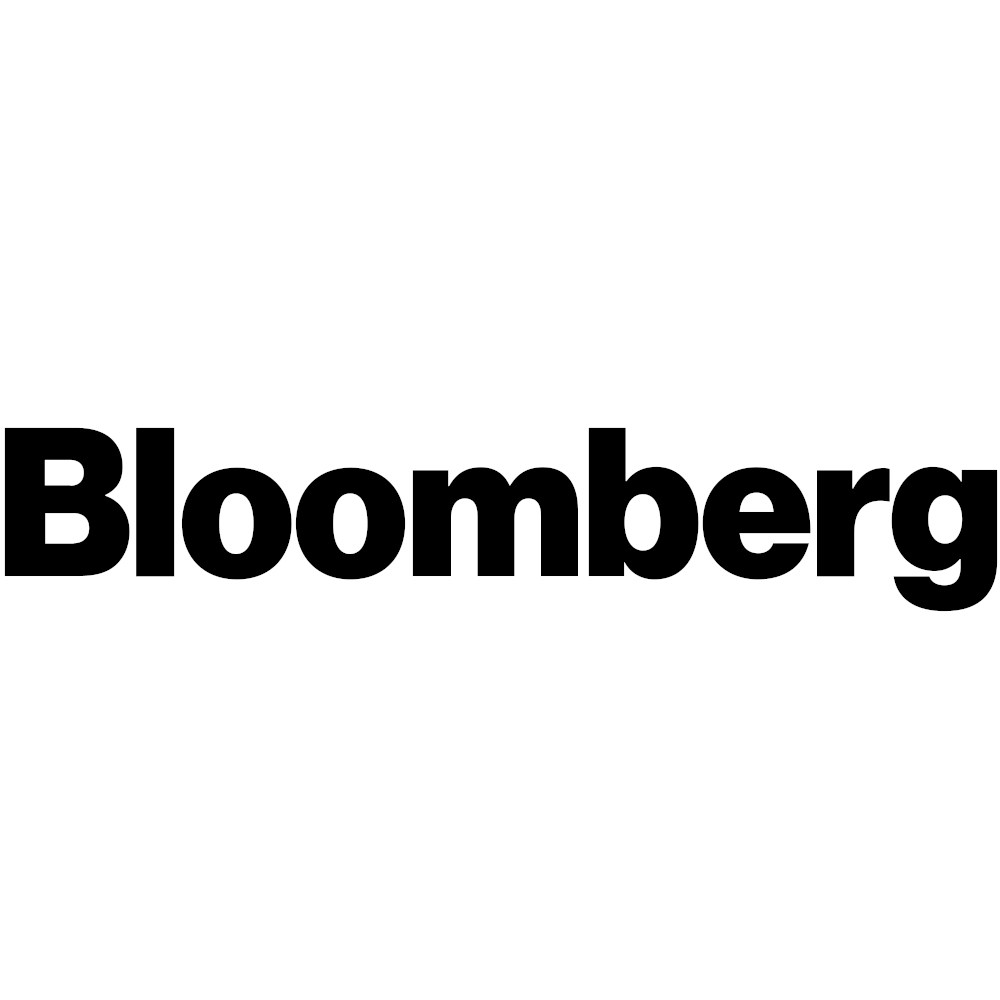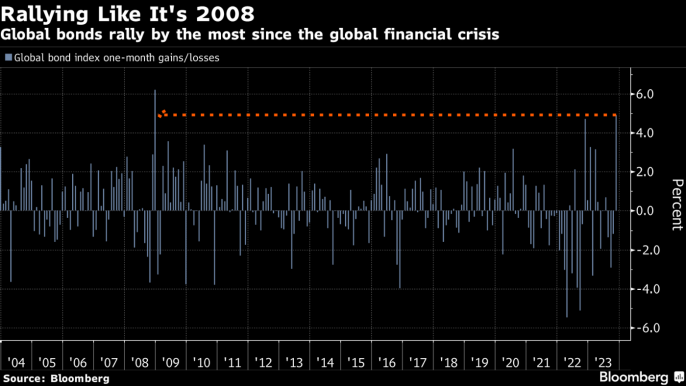Global bonds surge toward best month since 2008 financial crisis

- There’s still some tension between the views of credit investors and rates traders, whose forecast of rapid Fed rate cuts seem to require a significantly harder economic landing.

A Bloomberg gauge of global sovereign and corporate debt has returned 4.9% in November, heading for the biggest monthly gain since it surged 6.2% in the depths of the recession in December 2008.
November’s rally is being driven by increasing speculation the Federal Reserve and its global peers have largely finished hiking interest rates and will start cutting next year. Fed Governor Christopher Waller helped bolster that view Tuesday, when he said the current level of policy looks well positioned to slow the economy and bring down inflation.
“Waller has been a hawkish tilting member, so for him to sound dovish has been significant,” said James Wilson, a senior portfolio manager at Jamieson Coote Bonds Pty in Melbourne. “It sounds like the Fed is all but done in their hiking cycle.”
Treasuries extended this month’s gains Wednesday. US 10-year yields slid six basis points to 4.26%, while two-year yields dropped seven basis points to 4.67%. Australian bonds surged, sending 10-year yields tumbling 14 basis points, after weaker-than-expected local inflation data spurred traders to start betting policymakers are done hiking.
Volatile Year
The current rally is just the latest turnaround in a volatile year for bonds. The securities powered ahead in January before whipsawing over the next six months, and then starting a three-month slide from August. The Bloomberg Global Aggregate Total Return index was down as much as 3.8% for the year by the time it bottomed in mid-October. The gauge is now up 1.4% for 2023.
“The Fed is providing parameters for the potential of looser policy,” said Gregory Faranello, Head of US Rates Trading and Strategy for AmeriVet Securities in New York.
The last month that saw a stronger rally than the current one was December 2008 when the Fed cut rates to the zero bound and pledged to boost lending to the financial sector following the collapse of Lehman Brothers Holdings Inc. Bloomberg’s global debt index jumped 6.2% that month.
The current dovish shift in central-bank expectations has been a boon for corporate bonds. Spreads on investment-grade global company debt are hovering around the lowest levels since April 2022, according to a Bloomberg index. They have narrowed over the past month as investors rushed to snap up the securities amid increased optimism about a soft landing for the US economy.
The average yield on corporate bonds retreated to about 5.3% this week after climbing to almost 6% in October, the highest since 2009, data compiled by Bloomberg show.
Diverging Views
There’s still some tension between the views of credit investors and rates traders, whose forecast of rapid Fed rate cuts seem to require a significantly harder economic landing.
Swaps contracts currently anticipate a full percentage point of Fed easing by the end of 2024. US policy makers officials in their most recent forecasts in September anticipated hiking rates once more this year — which they haven’t done so far — and cutting rates by half a percentage point in 2024. They will update those forecasts at their Dec. 12-13 meeting.



